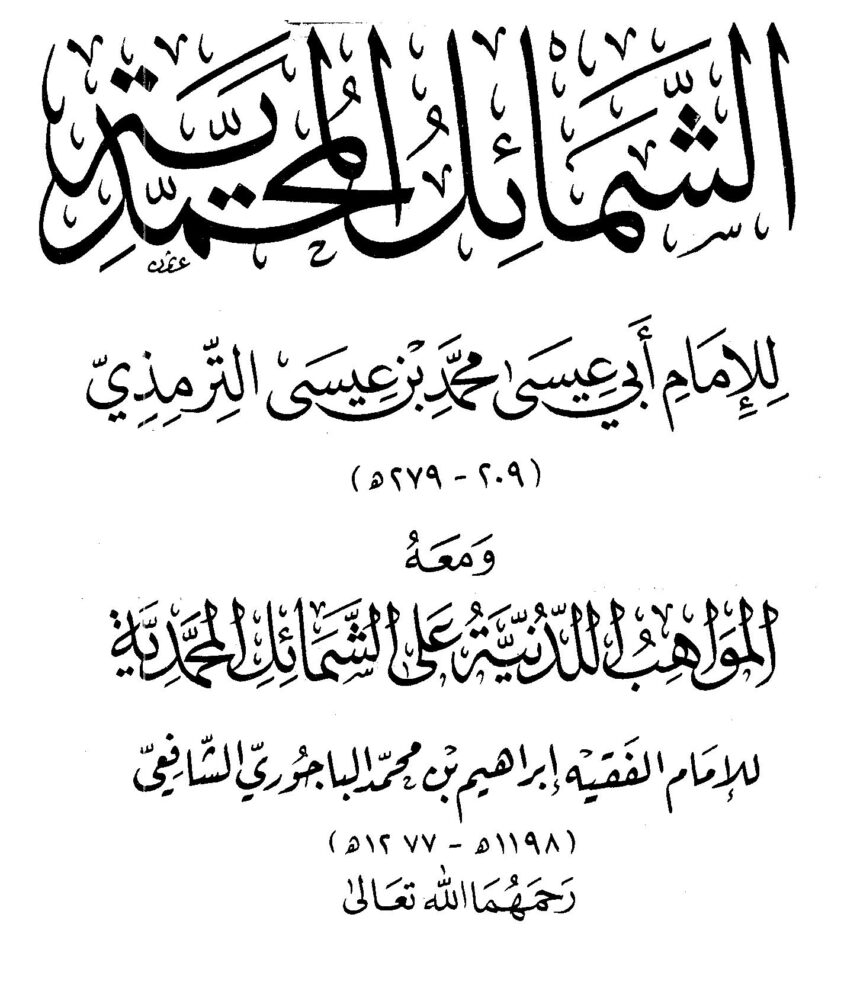All praise is due to Allāh the Most Merciful, the Compassionate and the Creator of the best of examples for the entirety of mankind. And may peace and blessings descend in their unlimited waves upon the prince of mankind, the honourable Prophet Muhammed ﷺ.
The scholars of Islam throughout the ages have without a doubt worked diligently, sacrificing their blood, wealth and tears, in order to preserve the teachings of Islam in their pristine condition- as close to revelation as was humanely possible. This happened by means of transmission. This transmission started from the Companions of the Prophet ﷺ who observed and memorised the teachings of revelation directly from the fountain of knowledge, they then taught it to their students (the Tābi’ūn), and they then passed this knowledge on to their students and so on and so forth.
From amongst one of the preserved sciences and branches of knowledge which was transmitted, was the science of “Shamā’il al-Nabi ﷺ”. This is the science that discusses the daily life, characteristics, qualities, appearance and demeanour of our beloved Prophet Muhammad ﷺ. The scholars of the past and present have covered this topic extensively, compiling many books both single and multi-volume. The most famous of them all is the “Al-Shamā’il al-Muhammadiya” by Imam Tirmidhi, available in many different languages.
The question now arises, why should we study Shamā’il and how is it relevant to my life?
Without making this answer too technical or lengthy, it would be more appropriate if this was first answered through the Qur’an and Sunnah.
Allāh Most High mentions in the Qur’an:
قُل إِن كُنتُم تُحِبّونَ اللَّهَ فَاتَّبِعوني يُحبِبكُمُ اللَّهُ وَيَغفِر لَكُم ذُنوبَكُم ۗ وَاللَّهُ غَفورٌ رَحيمٌ
“Say (o’ Muhammad) if you love Allāh, then follow me; Allāh will love you and forgive you your sins,, and Allah is all-forgiving, all-merciful.”
From this verse, we understand that the key to the love of Allāh lies in following the ways, commandments and mannerisms of our Holy Prophet Muhammad ﷺ. Whoever feels their heart possesses the love of Allāh Most High, they should use the ittibā’ al-sunnah (following the Sunnah) as their yardstick. Because love is something that is hidden, we rely on indications and actions of love to show us the true level of love in our hearts.
If we look at the lives of the scholars of the past, we would evidently see that their lives attested to the love of Allāh in their hearts, by looking at the level of ittibā’ al-sunnah they had in their lives and how they emulated the Holy Prophet Muhammad ﷺ in every single thing they did. If the Prophet ﷺ would wear his right shoe first, they would do so. If He ﷺ ate a particular food and it was his favourite, they would also make it their favourite- and similarly, if the Prophet ﷺ ever adopted a certain quality or exhibited a particular character trait- those righteous scholars, because of the love they had for Allāh and His Messenger, would also bring that into their lives.
These teachings of emulating the Prophet ﷺ come directly from the noble companions (Sahabah). If we read the biographies of the Sahabah, we will see that they didn’t only follow the Sunnah’s pertaining to worship, but rather they also inculcated the Sunnah’s of the life of our Prophet ﷺ . The following narrations are examples of such;
“Abdullāh bin Qushair narrated, that Mu’āwiyah bin Qurrah (r.a) narrates regarding his father, he says;
“I came to the Messenger of Allāh ﷺ and pledged allegiance to him and the button of his Qamīs[1] was open.”
“Thereafter I didn’t see Mu’āwiya nor his son ever in the summer or winter except that the buttons of their Qamīs were left open.”[2]
In another Hadith it comes;
“Anas (r.a) narrated that a tailor once invited the Messenger of Allāh ﷺ for a meal he had prepared. Anas said,
“I went with the Messenger of Allah ﷺ to partake of that food. The man presented to the Messenger of Allāh ﷺ some barley bread and a broth that had pieces of gourd and dried strips of meat in it.” Anas (r.a) said “I saw the Messenger of Allāh ﷺ seek out the pieces of gourd from the sides of the bowl, so from that day forward I have not ceased loving gourd. (I have always loved gourd?)”[3]
An onlooker, with no prior knowledge, would see this behaviour as strange and maybe over-zealous or a façade, that a person irrespective of the demands of his taste buds, begins to love a food item simply because of the preference of another. However this is the demand of love, that the actions which manifest as a result of love cannot be explained and are not bound by the laws of logic.
As we can see from the above narrations, following the Sunnah of Prophet Muhammad ﷺ and inculcating it in our life is from the way of the Sahābah and similarly this practise was carried on for centuries by the students of the Sahābah and those righteous believers who came after them. So by following on with this practise and imitating those righteous companions, we hope that Allāh will also include us amongst them and amongst those people who Allāh attests to have love for him.
We finally ask Allāh that he allows us all to act upon the Sunnah to the best of our ability and that he accepts all efforts from us whilst doing so. We also ask Allāh that he be pleased with those Sahabah and scholars who went to great lengths to preserve this knowledge for us. Āmīn
Ml Hanzala Khan
Sha’bān 1444 h. | March 2023
[1] Due to not knowing the exact nature of the Qamīs of the time, it would be problematic to translate it with a word referring to an item of clothing of today. However, the Qamīs was known as an upper garment with buttons.
[2] Sunan Ibn Mājah
[3] Shamāil al-Tirmidhī


Leave a Reply